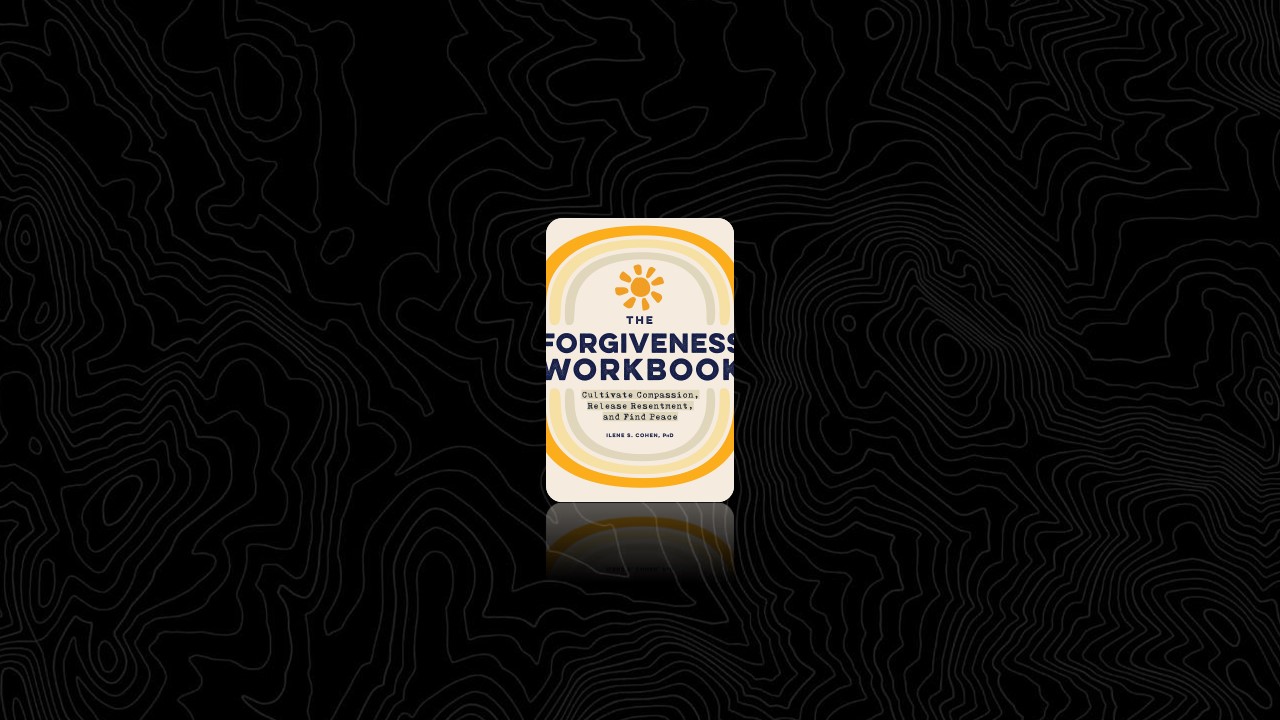What Is the Meaning of Forgiveness?
First and foremost, forgiveness is a process, meaning that it takes time and isn’t always easy. To forgive someone means making a conscious effort to let go of something hurtful that happened to you by releasing negative thought patterns, anger, resentment, or pain. By engaging in this emotion-focused process, you are making an active choice to no longer suffer from the harm that was done to you.
When we see forgiveness this way, it becomes clear that forgiveness is also freedom. It is freedom both from the past and from future victimization, because when you forgive the painful events of your past, they no longer define or control your present. By taking life’s pitfalls as opportunities to grow instead of places to dwell in hopelessness, you are reclaiming your power. You are reclaiming your life.
Why Is Forgiveness Important?
If you were lied to, verbally attacked, abused, cheated on, or drastically betrayed in some other form, it is completely natural to be angry and upset. However, those residual emotions can affect your relationships and other parts of your life. As the saying goes, hurt people hurt people , and that is how patterns of abuse and pain pass from generation to generation. Taking these patterns into account, forgiveness is not just important but also vital.
Furthermore, anger takes up a lot of energy that could be better used in other areas of our lives. When we hold on to anger, we give our offenders control over our thoughts and emotions. Even though the past is long gone, we remain there until we’re able to forgive and let go. As a result, forgiveness not only helps us reclaim our sense of power but also helps us move our lives forward.
Why Forgiveness Is So Hard and What You Can Do about It
You’re not a bad person if you’re finding it difficult to forgive someone; you’re human. As human beings, we’re pre-programmed to avoid danger or anyone who has proven to be untrustworthy. Therefore, thinking about forgiving someone who harmed us goes against our very instincts. More often than not, it is wise to listen to your instincts. But if they’re keeping you trapped in a place that doesn’t allow you to move past the wrongdoings of others, it’s time to make the tough decision to forgive. The following are three ways to help you move past your instinct to avoid forgiveness.
Admit the Challenges to Yourself
From early childhood, many of us grew up with fairy tales that show people with seamless relationships resolving conflict perfectly, as if relationships don’t carry the realities of disappointment, disagreement, or pain. When we expect our lives to resemble those unrealistic outcomes, we don’t equip ourselves with the proper tools to deal with conflict effectively. Afraid of being wrong or unable to see a clear resolution, we cut people out instead of trying to resolve issues. This is especially true if we already feel betrayed, as facing our problems simply adds another layer of anxiety. However, it’s important to be honest with yourself about the challenges you will face to move past the dispute. Knowing that the challenge lies not only in the betrayal but also in the anxiety it creates is key.
Release the Heavy Burden
As the influential teacher Ajahn Chah explained in his book Food for the Heart , when we choose not to follow the path of letting go, it is like deciding to carry a heavy rock around with us, weighing ourselves down. We don’t know what to do with the rock, so we keep carrying it around. Even if others explain to us the benefit of throwing away the rock, we’re still afraid to let it go. We’ve been carrying it for so long that it’s become a part of us, and we continue to carry it until we get so weak and tired that we have no choice but to let it go. It’s only then that we can finally feel at peace and recognize how physically and mentally heavy that burden was. Letting go of negative feelings and pain invites peace and the release of unresolved conflict.
Know It Takes Courage
I once thought that I had to show courage and strength by holding grudges and removing people who offended or betrayed me from my life. However, the real power comes from listening to your pain, finding ways to manage during those times, and noticing your anxiety without suppressing it, avoiding it, or passing it on to someone else. It means summoning the strength to say, “I am hurt and not sure what to do, but I want to find a way to forgive.” Real courage is knowing that forgiveness will be hard but finding a way to do it anyway.
The Stages of Forgiveness
These stages allow you to break up the forgiveness process into digestible sections that are part of a larger, comprehensive healing process. Each stage leads seamlessly to the next, and each has its own purpose and significance as you travel toward your forgiveness destination.
Stage 1: Identification
Many people who are hurt internalize their pain and mute themselves for fear of creating more problems or a more significant confrontation.
What would you say to the person or people who hurt you if you weren’t fearful of the consequences? Make a point to express how they hurt you and clarify what would be essential for them to know. Write openly and honestly without censoring yourself. Let your truth come out.
Healing isn’t a linear process. It’s messy and unpredictable. We might consciously be aware that we want to forgive, but our unsettled feelings won’t immediately go away. As eager as we might be to move forward, it’s important not to rush through the process. To truly heal, we must honor the truth of how we feel, no matter how winding the path may be.
Stage 2: Acknowledgment
Living your life fully aware of yourself and your emotional triggers allows you to have freedom. When we can identify and acknowledge what hurts us, we can learn how to think under stress and be clearer about what it is we want to forgive. If we ignore and deny our feelings, over time they end up controlling us in other ways. Here, look within and continue to get to know yourself.
One of the main goals of this is for you to know yourself so well that even in your moments of emotional reactivity, anxiety, and doubt, you can still make intentional shifts in the right direction. What a difference it would make in your life and your choice to forgive if you openly acknowledged your feelings instead of avoiding them or letting them consume you in other ways.
Stage 3: Empathy
When shifting our perspective from our own point of view, we can see that we were all born innocent but might have grown up under different circumstances that have shaped and impacted the people we are now. Even if you were raised similarly to another family member or person within your household, everyone experiences things differently or has unique limitations to overcome.
As you try to feel compassion and empathy, you may instead feel numb and distant at times. That is understandable because when we are hurt, we tend to build walls and protectively distance ourselves from feelings of warmth and love. In life, we all have a mix of good and bad memories, and we can choose how those memories live inside us.
To cultivate compassion and empathy for those who hurt you, you only need to have the willingness to understand whoever hurt you in their context and to muster up the strength to gain a clearer picture of their perspective. You can do this, even with feelings of hurt and your own resistance.
Stage 4: Self-Forgiveness
When we don’t forgive ourselves, we can feel a deep level of disconnection from ourselves and others. We may even think that we aren’t deserving of forgiveness or a second chance. When working on self-forgiveness and feelings of shame, it helps to connect with others who have done things they are ashamed of. When we share our struggles with other people, we create a sense of meaning and purpose from our complicated past. When we are isolated, our guilt and shame can grow. We have a better chance of healing when we belong to a community and create meaningful connections.
Your self-talk is your most intimate inner dialogue, and if that dialogue is negative or overly critical, it puts you at a huge disadvantage. It makes it harder to see the value you bring to others and yourself.
Like most things in life, self-forgiveness is easier said than done. Our inability to truly forgive ourselves is connected to heightened depression, anxiety, and even a weaker immune system. When we choose to forgive ourselves, we decrease how guilt, shame, and self-hatred affect us.
Stage 5: Release
Have you ever noticed that when we are anxious, we are emotionally beating up either ourselves or others? When we see that we are doing that, it’s time to decide to be a bit kinder to ourselves and others. If you notice that you are overly critical in your mind, it’s time to redirect your thoughts.
When you have decided to move on, try to redirect your thoughts to be more factual and positive. For example, say, “I am choosing to learn from my experiences,” “I am letting this go,” “These negative thoughts are exaggerated because I am upset,” and “I am going to focus on me now instead of thoughts that don’t serve me.”
Within your forgiveness journey, part of the passage to healing is to grant yourself the kindness to proceed. Just give yourself permission to forgive and let go. Let go of the pain. Let go of the disagreement. Let go of the grief. Let go of the self-hatred. Let go of the blame.
Stage 6: Reflection
R eflection covers the power of forgiveness and its essential role in our personal growth. This final stage is an opportunity to reflect on your development so far and think mindfully about how you would like to move forward.
When we are emotionally mature, we can be part of our environment and engage in our relationships while remaining in control of our minds. Even amid others’ emotional reactivity, people with emotional maturity can think logically. They can navigate tricky situations using their goals and values as a compass rather than succumbing to urges to distance themselves or react with anger. They are less invested in being accepted and more invested in living from their values authentically.
As we mature and grow, we notice that a good life isn’t one without hardships. When living on purpose, in gratefulness, and with intention and a forgiving heart, we allow the difficulties to work in our favor instead of letting them push us off course. We don’t shy away from the struggles in life but instead see them as opportunities to grow into who we are. When someone wrongs you, it says more about them than it does about you. Don’t allow others’ actions to take the good out of you. Rise to your circumstances and lead by example.


